If you want to truly know Zach Wilson, the promising young quarterback on whom BYUdom has placed so much hope, you have to start with the family. He is the latest in a long line of highly successful, driven people on his mother’s side — the Neelemans are lawyers, doctors, international bureau chiefs, entrepreneurs, evolutionary businessmen in the airline and medical industries — and the product of a father who survived a difficult childhood and vowed to give his children the attention he never knew.
Somewhere at the nexus of nature and nurture, a football prodigy emerged from this familial mix, one who, months after graduating from high school, became the youngest quarterback ever to start at the school formerly known as Quarterback U. He has transformed the team’s possibilities.
Wilson looks like the Boy Next Door — blond-haired, blue-eyed, clean cut — but inside roils a restless, steely determination to excel at his chosen craft, which often keeps him up late at night studying videos on his iPad instead of sleeping. Success has come fast, and sometimes he seems to wonder at it all, like everyone else. Walking out of the BYU football office recently, he paused to stare at one of the many trophy cases that line the halls. It was a photo of himself celebrating last December’s Potato Bowl, where he set an all-time bowl record by pitching football’s version of a perfect game. He threw 18 passes, he completed 18 passes. They went for 317 yards and four touchdowns in a win over Western Michigan that was so lopsided he got pulled in the fourth quarter.
Zach Wilson passing stats in 2018 Potato Bowl
| Comp. | Att. | Yards | Yards/Att. | TD | Int. | Long | Pass eff. |
|---|---|---|---|---|---|---|---|
| 18 | 18 | 317 | 17.6 | 4 | 0 | 70 | 321.27 |
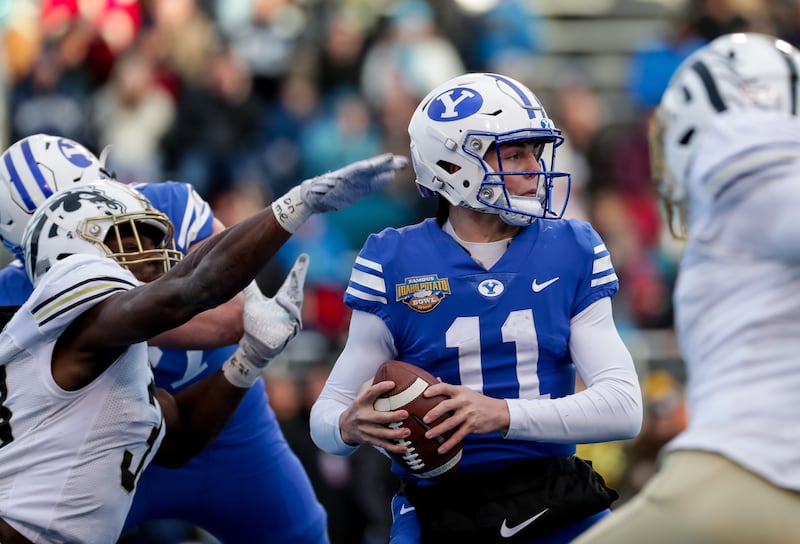
It was the exclamation point on a freshman season in which he threw for 1,578 yards in nine games, completing 65.9 percent of his passes. His pass efficiency rating was a superb 157.2, but if that means nothing to you then simplify it by looking at these two numbers: touchdowns-to-interception ratio: 12:3; average yards per attempt: 8.7.
He’ll begin his second season with great anticipation Thursday night in a game against nationally ranked, archrival Utah. Some 50 to 60 family members will be in the stadium, wearing blue and white. They were lifelong Utah fans, season-ticket holders, alumni — Wilson’s parents had seats adjacent to Utah coach Kyle Whittingham’s family on the 50-yard line — so leaving the Utes was like going through a divorce. The irony is that they are the reason he plays for BYU.
As has been widely reported, he was committed to Boise State. The family’s garage is still filled with Boise gear (if you’re in the market for a $300 BSU-themed cornhole game, call now), and they posted a Boise flag in front of the house and bought Boise apparel. “We were all in,” says Lisa, the quarterback’s mother.
But one thing gnawed at Wilson. How could he make regular visits to see his family? “Zach is just a home kid,” Lisa says. He wanted to be home for Sunday dinners. He wanted to be home for Tuesday night dinners, when his beloved grandparents have a standing invitation. He wanted his family to be able to see him play.
“I was mad. They waited until the fourth quarter with one minute left and now they want to sign him?” — Lisa Wilson, on BYU’s recruitment of her son, Zach
But interest among local schools was tepid at best. Utah never called. Whittingham later told the Wilsons that in making an offer to another hotshot prep quarterback, Jack Tuttle, he had promised not to talk to any other quarterbacks (Tuttle transferred after one season). BYU coaches watched one of Wilson’s junior-year games, and that spring the Wilsons attended a BYU practice. Afterward, they talked to head coach Kalani Sitake and offensive coordinator Ty Detmer “but we walked away feeling no interest,” says Wilson’s father, Mike. All communication with BYU ended. Wilson committed to Boise State in April 2017.
Like many schools, BYU left the ultimate decision for quarterback recruits to its offensive coordinator. The day after BYU fired Detmer, in late November, Sitake called Wilson’s dad to ask if there was any chance his son would come to BYU. The coach apologized and said he should’ve offered Wilson a scholarship sooner and now he was doing just that. Mike was doubtful. He told the coach he had to talk to Zach, but the real challenge would be Zach’s mother.
“I was mad,” says Lisa. “They waited until the fourth quarter with one minute left and now they want to sign him?” The Wilsons agreed to meet with the coach. As the four-hour meeting ended, Sitake made one final pitch: “Zach, you can drive home every Sunday night and have dinner with your family.”
That got his attention. Zach, who had been wavering about his Boise commitment (by now he had 17 offers from major out-of-state schools), told the Broncos he was going elsewhere. The family agonized. They listed the pros and cons of going to BYU. The pros: “A good education, a chance to play immediately, close to home.” The cons: “We hate BYU.”
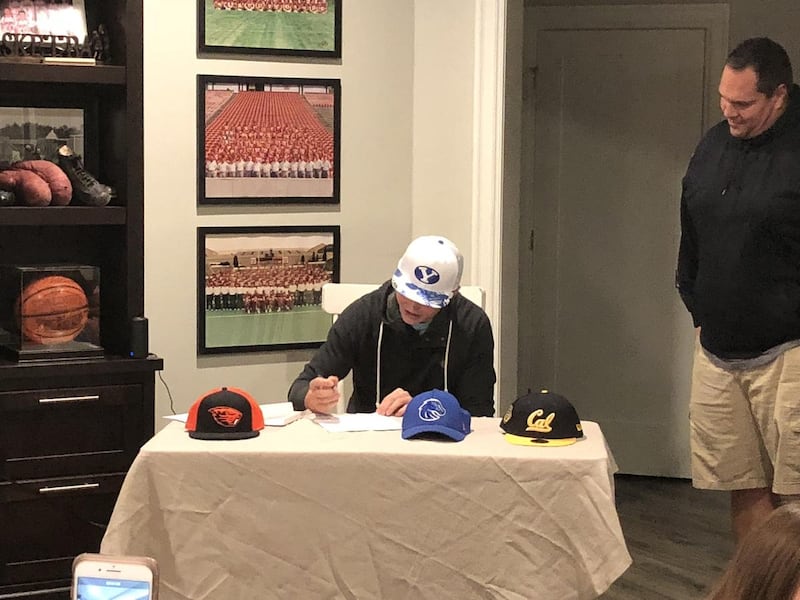
The family came around to the idea that one of their own would wear blue and white. They were singing Christmas carols at a Neeleman family party when suddenly, all of them — Neeleman uncles, aunts, cousins and grandparents — broke out with the Cougar Fight Song. Many of them were ardent Utah fans, but they were telling Zach they were behind him if that was the school he chose. He soon signed with BYU and at a subsequent holiday party with family he put his arm around his grandfather’s shoulder and, looking at the noisy crowded room, said, “Grandpa, you know why I went to BYU? This is why.”
That Wilson ascended to the starting job as a 19-year-old, four months removed from Corner Canyon High, seems almost inevitable when you consider his maternal roots. Determination, persistence and success seem locked into the Neeleman DNA.
The patriarch and matriarch of this dynamic Neeleman clan are Gary and Rose Neeleman, who have been married 62 years and preside over seven children, 36 grandchildren and 28 great-grandchildren. “They are the glue that holds it all together,” says Zach.
They are 85 and 84 years old, respectively — and still working. Brazil, their second homeland, offered Gary a job 18 years ago as honorary consul for the 20,000 Brazilians who live in the Intermountain West. He was told the job did not pay and would mean lots of phone calls from people with problems, but it was not without its perks — he would receive a free Brazilian flag and a coat of arms. It was an offer he couldn’t refuse. Almost simultaneously, he also was called to serve as bishop of the local ward of his church, another nonpaying, time-consuming gig he couldn’t refuse.
Gary, who faces the additional challenge of fading eyesight, and Rose wield thick wooden canes to travel daily from Sandy to their Salt Lake office — which they pay for out of their own pockets — to answer a dozen or so calls from people whose problems range from lost passports and illness to arrest and accidents.
Gary and Rose grew up in Salt Lake City. Both of their fathers owned grocery stores. After graduating from South High, Gary was forced to choose between accepting a football scholarship to Utah State or serving a church mission. He chose the latter and spent three years in Brazil.
“When I was younger I knew it was crazy how successful my (relatives) were. They all were very creative. I come from a long line of hardworking people.” — Zach Wilson
When all seven of the Neeleman children would go on to produce a long list of accomplishments in a variety of fields, it wasn’t difficult to find the source of their energy, diverse interests and motivation. At South High, Gary was captain of the football team, the lead in the school play and president of the school band (and saxaphone player). At the University of Utah, he threw the shot put for the track team and performed in 23 plays and musicals (Rose appeared in several of them, as well). There is a room in the basement of Kingsbury Hall named the Gary and Rose Neeleman Dressing Room.
Gary began his career as a reporter for the Deseret News and KSL and then accepted a job as a correspondent and bureau chief for United Press International in Brazil. If there was a visiting dignitary or a big news story he was there. He traveled with Fidel Castro and four Brazilian presidents. Gary and Rose, whom he married 13 days after returning from his mission, lived in Brazil for seven years — three of their children were born there — before returning to Salt Lake City. He eventually was hired as vice president over UPI bureaus in the Western U.S., and then years later he was asked to return to Brazil to oversee bureaus in Latin America and the Caribbean. He refused to move, so UPI allowed him to remain in Utah, but it came at a cost. With offices in New York and Washington, D.C., and many responsibilities abroad, he was required to travel 200 days a year. In all, he worked 27 years for UPI, 17 years for the LA Times and 10 years for The Washington Post.
Gary and Rose decided once to create a bucket list and realized they had already completed it — a list of 28 items with 40 pages of notes, covering everything from climbing the Great Wall of China to sailing the Nile (the list didn’t even count most of the 110 countries Gary visited). They have co-written a dozen books about their experiences, most of them relating to Brazil — cookbooks, histories, reminiscences, historical novels — many of them produced in their golden years.
To compensate for the long absences at the height of his professional career, Gary took his family with him on the road during the summer school break. “We involved our children in everything we did,” says Gary. “That was really important for them to feel they were part of it.” With the kids packed into the back of the family station wagon, they traveled throughout the U.S. from June till September. While Gary visited radio stations and newspapers the family visited local sites.
“Rose and the kids ate more KFC in local parks while I was working than anyone on the planet,” says Gary.
The children have gone on to distinguish themselves.
John, the oldest child, is a partner in a Seattle law firm (his wife is also a lawyer).
David, the second child, earned fame and fortune in the airline industry. He founded Morris Air, WestJet, JetBlue Airlines and Azul Brazilian Airlines. Along the way, he dramatically changed the industry. He invented the electronic ticket (he sold the idea to Hewlett-Packard) and spawned the ideas of in-flight entertainment and at-home reservationists. He was featured on “60 Minutes.” His net worth has been reported as high as $400 million.
Julie manages the family’s 10,000-acre Zion Ponderosa Resort near Zion National Park, ranked among the best family retreats in the U.S. by U.S. News and World Report.
Pamela is general manager of the Wyndham Hotel in Midway. At 56, she recently graduated from Utah Valley University with a degree in hotel management after juggling class time, raising four children, and running a hotel and a real estate business. No one in the family can be surprised. As a young girl, she sold makeup and had her own checking account by 13.
Stephen attended Utah State on a football scholarship and was an Academic All-American and USU Man of the Year. After three seasons and a series of stinger injuries that left his arms temporarily numb, he gave up the sport rather than risk his plans to become a surgeon. He went on to become head of trauma surgery at American Fork Hospital. Eventually, prompted by his dislike of the medical insurance industry, he started HealthEquity, the country’s first and largest health savings account company — basically, a 401(k) for paying health costs. It produced $230 million in revenue last year.
Lisa is a personal trainer and teaches exercise classes at a Draper gym. She also runs a sweatshirt-T-shirt business while raising six children.
Mark, another family entrepreneur, started a home security business and a bamboo supply business in Brazil.
“My parents instilled in us a crazy work ethic,” says Lisa, a fit and frenetic blonde. “No matter what we were doing, you go all in, or don’t do it. Neelemans have deep-set eyes because none of us sleep. We were so busy we didn’t eat dinner till 10 or 10:30. We waited for dad to get home.”
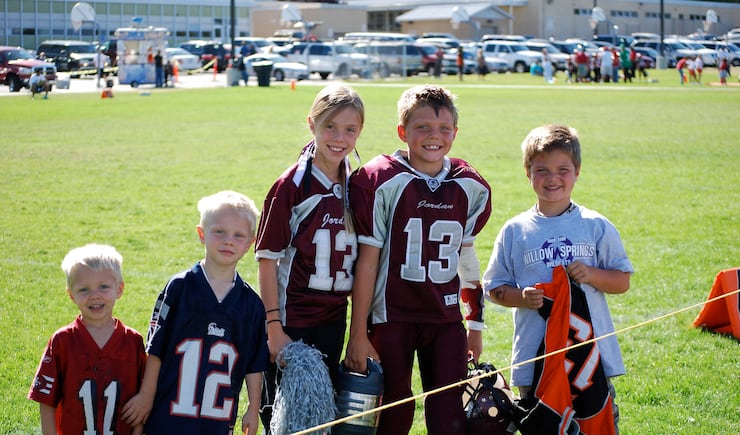
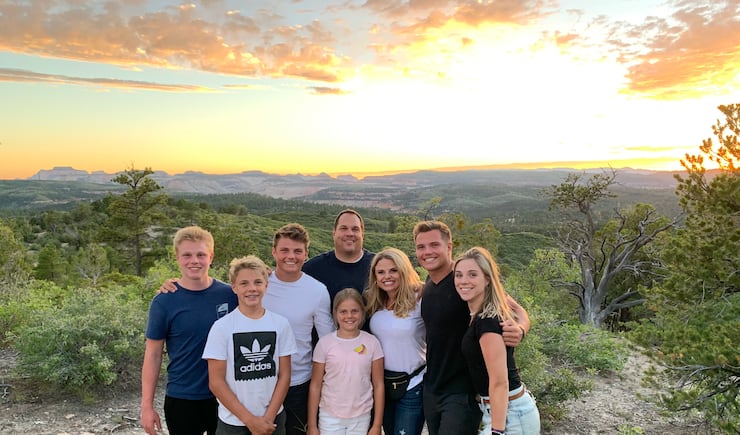


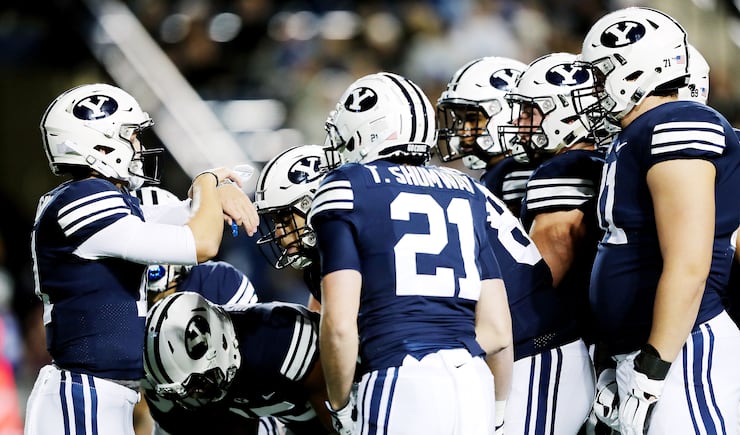
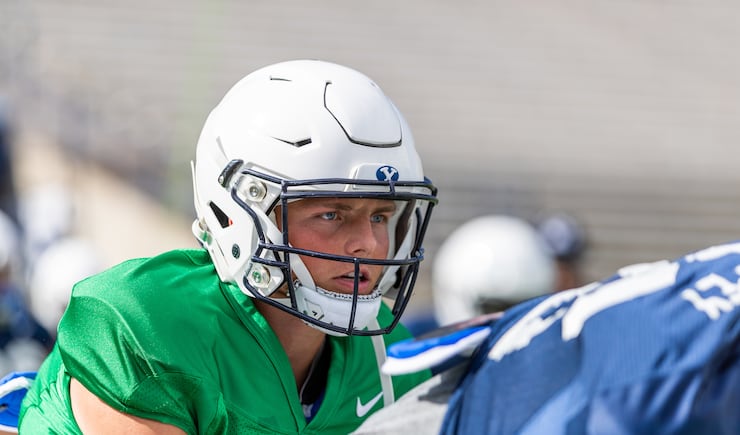
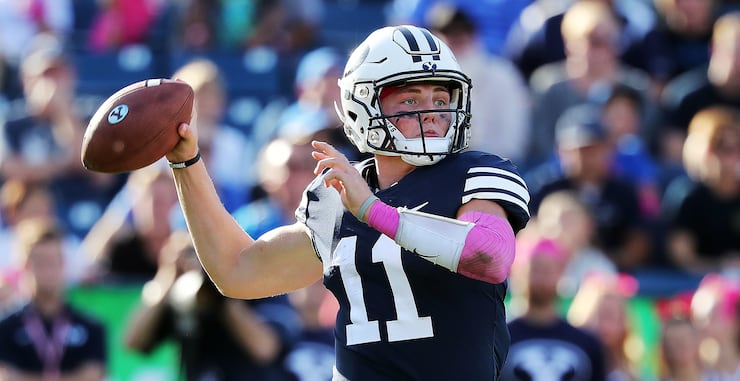
None of this escaped the notice of the next generation. As Zach notes, “When I was younger I knew it was crazy how successful my (relatives) were. They all were very creative. I come from a long line of hardworking people.”
Zach can trace some of his own traits directly to his maternal uncles, aunts and grandparents. More than half of them have attention deficit hyperactivity disorder (ADHD), including Lisa, David and Zach himself. David was in his mid-30s when his mother sent him a book called “Driven to Distraction,” and urged him to read it. It was an epiphany for David. “I struggled a lot in school,” he told Fortune magazine. “I really had a hard time with standardized tests, staying focused and absorbing information from a written page into my brain. It was tough. I thought I was stupid, that I didn’t have what the other kids had.”
Wilson had a similar experience. He earned good grades in high school, but when he got to college he struggled with the increased demands to pay attention in class and take notes. Wilson, who had always suspected he might have ADHD, submitted himself to a test for the disorder and tested positive. He is on medication.
There are many famous, highly successful people who have been diagnosed with ADHD — Walt Disney, Albert Einstein, Michael Jordan, Sir Richard Branson, John F. Kennedy, among them. Studies show that those with ADHD score higher on creative achievement and ideas. They’re described as spontaneous, instinctive and curious. As Gary puts it, “They think out of the box.” The disorder has its challenges, but it also can be productive. David was giving a speech at Harvard when someone in the audience asked him if he was on medication for ADHD. He said no. When asked why, he replied, “Because if I did I’d be like the rest of you.” Those with ADHD can focus heavily on stimulating things, such as video games, or football. Zach spends hours, for instance, studying football-related videos and the many nuances of his position, but put him in a history class and his mind wanders.
“School can be hard. I try hard, but it’s a struggle for me because of the attention deficit. When it comes to football I can do it all day.” — Zach Wilson
“School can be hard,” says Zach. “I try hard, but it’s a struggle for me because of the attention deficit. When it comes to football I can do it all day.”
It was Wilson’s father who channeled all of that energy into football and then nurtured it. Mike threw himself into fatherhood with a certain intensity, driven by the challenges of his own childhood. His father was an alcoholic (he would die at 49), and his parents divorced when Mike was a boy. “I had no relationship with my dad at all,” says Mike, whose family had moved to Hawaii when he was 1. His mother was almost always away from home working, and Mike and his two younger sisters were left on their own (the youngest sister died of a brain tumor at age 9). Mike performed many of the household chores and helped care for his youngest sister.
He graduated from high school at 17. He didn’t even have a driver’s license — his mother couldn’t pay for it, and he rode a bike or took bus to get around Oahu. He starred as a defensive lineman on the football team and earned the attention of college recruiters. He signed with Utah (he was so young that he had to obtain a waiver to sign the paperwork). After redshirting the 1992 season, he played the next two seasons — the ‘94 team was 10-2 and No. 8 in the final national poll — but a knee injury in ‘95 put him on the sideline and he eventually underwent seven knee surgeries, which cost him his senior season.
He completed a degree in sociology and planned to return to Hawaii immediately until he met Lisa. Settling in Utah with his new wife, he faced a dilemma: He could accept a job offer from the fire department, which would provide a steady income, or he could take the riskier path and buy his own business. He chose the latter. He had worked part-time in the Neeleman family mini-mart as a student and now it was for sale. He bought the store and over the years he also acquired several gas station/convenience stores and a laundromat and built a successful career as an entrepreneur.
When Mike’s businesses became more successful, he had more free time and chose to spend it with his children. “I always said that I’m going to be a big part of my kids’ lives when I’m a parent,” he says. “I would spend a lot of time with them.”
As it turned out, much of that time was spent in athletic pursuits. He began coaching Zach’s little league football and basketball teams when his son was in second grade, and it grew into a year-round training program over the years. For a time he thought Zach’s future was in basketball. He played about 100 basketball games a year for club and school teams. He started for the high school basketball team as a sophomore and junior but didn’t play his senior year so he could graduate early and participate in spring football at BYU.
To prepare for football, Zach and his father lifted weights and studied film together for years, and when his three brothers were old enough they joined them. They threw thousands of passes and did thousands of drills. They threw the football whenever and wherever they could. While waiting for Lisa to finish her shopping one day, Mike and the boys threw passes in the parking lot.
Mike was Zach’s private quarterback coach from grade school through high school. His background was line play, but he taught himself to coach quarterbacks by gleaning information from other coaches, researching the internet, studying YouTube videos, and through trial and error. He learned every aspect of the position — the drop, footwork, reading defenses, throwing motion, hip turn, posture.
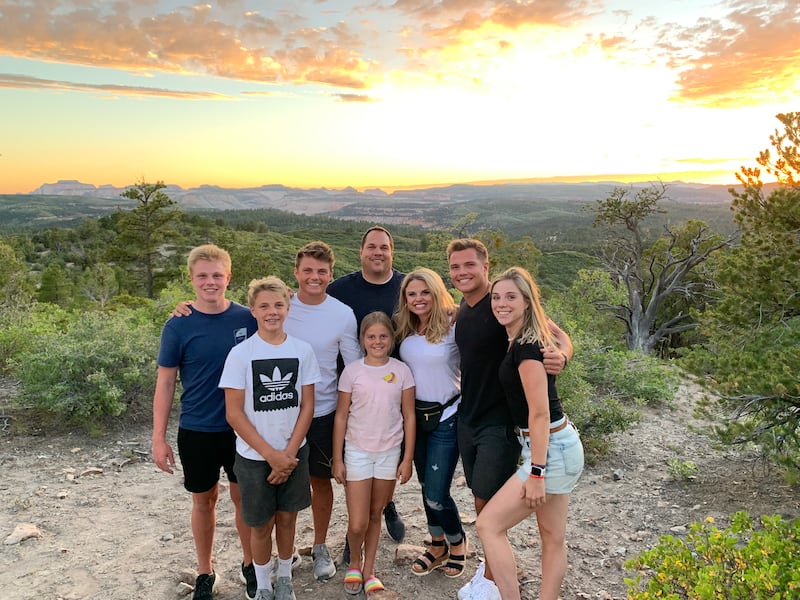
“I learned everything from him,” says Zach. “It was a me-and-my-dad kind of thing. If he didn’t know something, he’d research it. We figured it out together rather than hire (a quarterback coach). It was a learning experience for both of us.”
“I learned everything from him. It was a me-and-my-dad kind of thing. If he didn’t know something, he’d research it. We figured it out together rather than hire (a quarterback coach). It was a learning experience for both of us.” — Zach Wilson
Looking back, he says, “My childhood was different than my friends’. I wasn’t a kid who had a lot of free time. I couldn’t just hang out with friends or play video games. I was never into that. I was super busy. Dad had me playing two years up (above his age) in basketball and a year up in football. I was playing seven or eight games a week. Every weekend was crazy. It was hard on a kid to be playing that much. I wanted to be a kid. Eventually, it paid off. I think I separated myself. Dad pushed me to work hard. If I didn’t want to, he made me. That work ethic just wasn’t there yet. Now I’m grateful. (But) when I was younger (junior high age) I couldn’t play until I went to the gym or lifted weights. I started football at 7. Even then he pushed me. But not in a bad way.”
Ask Mike about this, he says, “If you let kids sit around all day they play video games. Zach was never a big video-game guy, but he would want to hang out with friends, and I would say, no, let’s work out. I was always pushing Zach to do other things besides sitting around doing nothing. Then there was the phone thing — the kids are on Twitter or Snapchat or whatever. We have limits on all that.”
It is a measure of Zach’s relationship with his father and his family that he and his dad call each other every day, and Zach drives home two or three times a week for dinner. Mike misses his son. “It’s been difficult,” he says. “He’s been gone for a year. We talk every night on the phone, but it’s not the same,”
The phone calls usually turn into long, esoteric discussions about football. Zach sends video to his father from that day’s practice and they review his performance together on their iPads. “He gives his input and makes pointers,” says Zach. “He’s hard on me, never easy. I’ll make a good throw and he’ll say it’s a little bit behind the receiver. He knows how I should be dropping. He might say, ‘Hey, why are you leaning?’” After such calls, Zach stays up late into the night studying videos of quarterback play, trying to learn or understand some aspect of the quarterback position. “I try to sleep,” he says. “I keep telling myself I’m going to go to sleep. But I stay up late.”
“You look at all this, these kids and what they’ve achieved. They are the products of a bigger thing.” — Gary Neeleman
Zach is one of six children. The oldest and youngest are girls — Whitney and Sophie — bookends for four boys (they all have Hawaiian middle names — Zach’s is Kapono, which means “righteous”). Like Zach, Whitney found success early. She was only 16 when she won an audition to dance professionally for Odyssey Dance company. She travels to performances in Europe during the summer. The boys are football players — Josh, a middle linebacker for Corner Canyon, will play for BYU next year; Micah, a sophomore linebacker at Corner Canyon; and Isaac, 13, a promising little league quarterback.
After every game, Zach looks for his family, walking to a place on the sideline to wave up to them in the stands. It’s a habit he began in high school when he visited his grandparents in the stands to thank them for coming. He has an especially close, affectionate relationship with his grandfather, as evidenced by the photo included with this story. “Rub my shoulder,” he likes to say to his grandfather, looking for some good luck. “Give me the Grandpa rub.” When Gary frets about the upcoming season, Zach tells him with a big smile, “Don’t worry, Grandpa, we’re going to be fine this season.”
“He’s all about family,” says Gary. He pauses and considers the family legacy again. “You look at all this, these kids and what they’ve achieved. They are the products of a bigger thing.”








